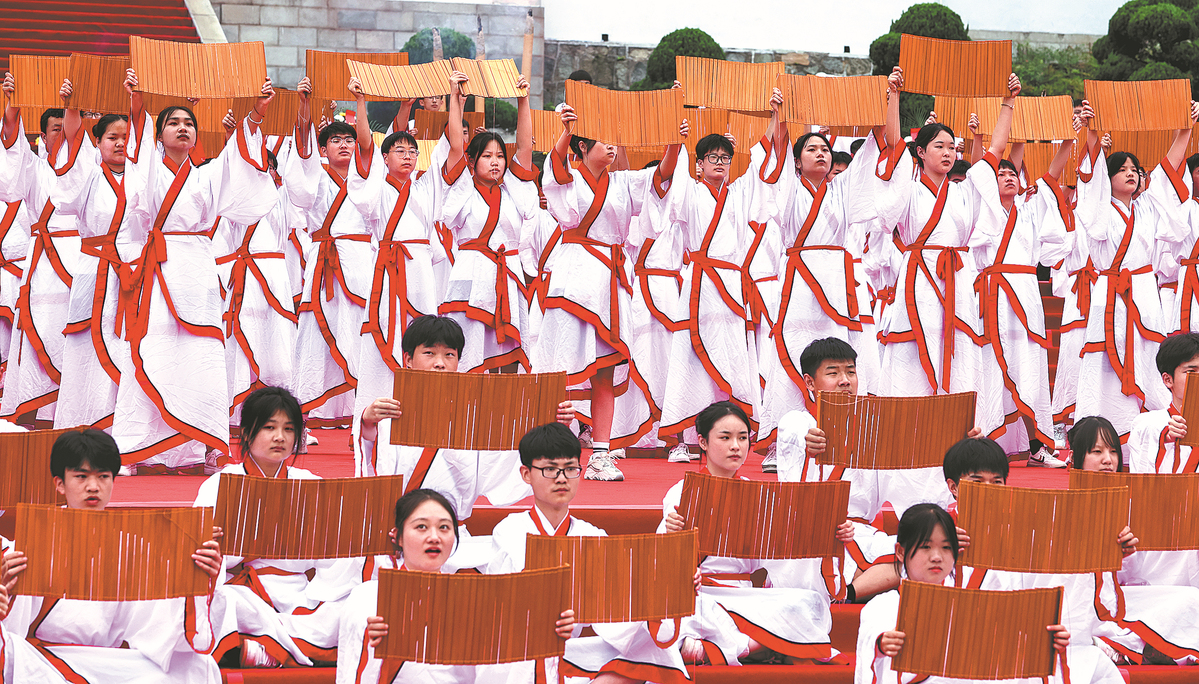Paddlers splash out into cultural waters


Dragon Boat Festival turns clock back to showcase China's rich history
Duanwu, also known as Dragon Boat Festival, which falls on Thursday this year, is an annual occasion for Chinese to have family reunions, watch dragon boat races, and eat zongzi — glutinous rice dumplings wrapped in bamboo or reed leaves.
In some regions, on the morning of the festival, parents tie string bands in five colors around their children's wrists, ankles or necks. When the first rain comes after the festival, they cut the bands off and throw them into the water to drive away evil spirits.
Xu Ning, 48, executive chef at Nanjing Great Hotel in Beijing, said: "The older generation likes to go to the food market to buy reed leaves and soak them in water for a night to make zongzi. As many people want a healthy diet, restaurants make different fillings for the dumplings."
In 2009, Dragon Boat Festival was added to UNESCO's Representative List of Intangible Cultural Heritage of Humanity, the first Chinese festival to receive this honor. The festival is believed to commemorate Qu Yuan, a patriotic poet from the Chu state during the Warring States Period (475-221 BC).
Legend has it that as the Chu state faced imminent conquest by its adversaries, Qu took his own life by plunging into the Miluo River on the fifth day of the fifth lunar month, which now marks the festival.
Qu came from Zigui county, Yichang city, Hubei province, where local people celebrate with their own customs on the fifth, 15th and 25th days of the fifth lunar month.
Zheng Chengzhi has hosted the county's annual grand sacrificial ceremony for Qu since 2006, when his father, the previous host, died.
He can't help shedding tears each time he reads the oration aloud. The emotions he feels go beyond a sense of responsibility to pass on heritage. The entire county celebrates Qu as the god of water, seeing him as a protective figure. More than that, the poet has become a father figure for Zheng.
"Qu's patriotism, people-oriented thought, honesty and inquiring mind are precious and worth learning about," said Zheng, the provincial inheritor of the intangible cultural heritage of "Qu Yuan's legends".
After his address, as the dragon boat paddlers skillfully navigate the waters, a female performer dressed as Qu's younger sister sings an emotional song to call back his spirit.
A poetry contest in Zigui, which has been staged for centuries, was once attended mainly by local farmers, who wrote poems about Qu and read them aloud to share with others. Zheng said it now attracts more contestants and the themes of their poems are not only about Qu but also modern lives.


















